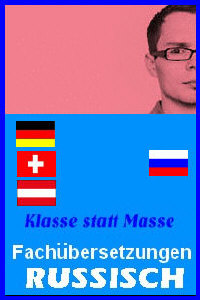What translation field should I specialize in? Thread poster: Matthew Olson
|
|---|
Hello. I realize this is a perennial beginner's topic, but I would appreciate any current/specific advice anyone would care to share regarding the topic question.
As a bit of background about myself, I've been translating Japanese to English for a couple of years and just went full-time freelance a few months ago. I have a B.A. in Japanese and have been slowly improving my skills as I gain experience with each translation job that I receive and as my time in Japan, where I currently... See more Hello. I realize this is a perennial beginner's topic, but I would appreciate any current/specific advice anyone would care to share regarding the topic question.
As a bit of background about myself, I've been translating Japanese to English for a couple of years and just went full-time freelance a few months ago. I have a B.A. in Japanese and have been slowly improving my skills as I gain experience with each translation job that I receive and as my time in Japan, where I currently live, grows longer. I mostly do general translation (however that may be defined), with some light dabbling in technical translation. However, I would like to begin to specialize, for all the usual reasons that can be seen on professional translator blogs recommending specialization (more money, it becomes easier and faster to translate because you begin to know the field[s] inside and out, professionalism, etc.).
I have already done some preliminary research into specialization (again, those snappy professional translation blogs that I'll need to make one of for myself someday), so I realize that there are several schools of thought on this such as attending training programs or, in the most extreme form, getting a degree from one of the handful of decent translation universities out there; getting a degree and/or working in the field you wish to specialize in; or just diving in head first in whatever field you are interested in/are offered by an unsuspecting client or agency, with a dictionary strapped to each hand.
Ignoring, for the moment, the validity or necessity of the means of specializing, I would ask for your suggestions as to what to specialize in. Of course, there are several ways to look at the idea of what is the "best" or a "good" field to specialize in as well, including which specializations can earn you the most money, which have the brightest future outlook, which is the most satisfying, etc. I would be happy to hear any and all suggestions for any and all reasons. Concrete examples, anecdotes, statistics, opinions, vehement dogma, admonishments and more, anything and everything would be welcome.
Thank you in advance. ▲ Collapse
| | | | Yuri Dubrov 
Russian Federation
Local time: 02:00
English to Russian
+ ...
| Just to think over | Oct 6, 2011 |
Vehicles and electronics make up 37.5% of Japan's exports and account for nearly half of Japanese products the U.S. imports.
Or
Exports: Japan's main export goods are cars, electronic devices and computers. Most important single trade partner is the USA.
Sorry -- I can say nothing about translator fees in these areas.
| | | | Jaroslaw Michalak 
Poland
Local time: 01:00
Member (2004)
English to Polish
SITE LOCALIZER | Personal interests | Oct 6, 2011 |
Make sure you are personally interested in the area you choose...
Otherwise it might be boring or difficult to keep up with the developments, follow specialized blogs/sites, read relevant literature etc.
Also, determining whether a specific area produces enough demand is next to impossible. Of course, the bigger the field, the more work there is, but also it is more likely to be saturated with competitors.
One factor you might look at is the entry threshold... See more Make sure you are personally interested in the area you choose...
Otherwise it might be boring or difficult to keep up with the developments, follow specialized blogs/sites, read relevant literature etc.
Also, determining whether a specific area produces enough demand is next to impossible. Of course, the bigger the field, the more work there is, but also it is more likely to be saturated with competitors.
One factor you might look at is the entry threshold: presumably, it is more difficult to take up work in the field of medical imaging devices (as this requires a lot of knowledge beforehand, preferably even a medical degree) than in the field of household appliances. On the other hand, this poses a challenge for you as well, if you still need to gain that knowledge.
Finally, choosing two rather distant fields is not unreasonable. Then, if there is a project where they converge, you will have a natural advantage. In the mentioned example of automotive industry and electronics you might get jobs concerning navigation systems, computer car diagnostic systems, etc. ▲ Collapse
| | | | | A niche and a mainstream | Oct 6, 2011 |
The personal interest angle is important.
You will be spending a lot of time reading, studying, following experts and generally learning all you can about your subject. If you do not enjoy it, it can be deadly, but if you do, then it adds to the pleasure of a fascinating job. But there will be times - with tight deadlines, difficult clients, exacting terminology and poorly written texts... when you need all the motivation you can muster!
There is nothing wrong with hobb... See more The personal interest angle is important.
You will be spending a lot of time reading, studying, following experts and generally learning all you can about your subject. If you do not enjoy it, it can be deadly, but if you do, then it adds to the pleasure of a fascinating job. But there will be times - with tight deadlines, difficult clients, exacting terminology and poorly written texts... when you need all the motivation you can muster!
There is nothing wrong with hobbies and sport - and plenty of money in leisure industries and tourism.
I used to regard translating menus and texts about food and nutrition as a little light relief, until I was introduced at a gathering of translators as 'the one who does the menus, recipes and diets' !
It was 'just' one of my hobbies, but I do collect recipes and 'Foodie' books in all the languages I can read... including nutrition and special diets.
Football is not for everyone, but an enthusiastic expert can be a pleasure to read.
You can charge higher rates for highly specialised work, but there may not be so much of it.
Find an area or two where there is plenty of 'traffic' - or work, so that you can expect to find work in one if there is a quiet period in the other. But there will also be a lot of competition in those areas.
Best of luck! ▲ Collapse
| | |
|
|
|
Drew MacFadyen 
United States
Local time: 19:00
Spanish to English
+ ...
| Try directory searches to find/exploit a niche | Oct 6, 2011 |
Full disclosure, I am not a linguist or translator. And this line of thought is purely based on marketing and does not take in to account the complexities of translation and specialization.
I was just thinking about this topic, and how it may relate to a measure of competitiveness within the ProZ.com directory.
More and more jobs that pass through ProZ.com go through directory searches rather than job posts. With directory searches ones position in the directory is d... See more Full disclosure, I am not a linguist or translator. And this line of thought is purely based on marketing and does not take in to account the complexities of translation and specialization.
I was just thinking about this topic, and how it may relate to a measure of competitiveness within the ProZ.com directory.
More and more jobs that pass through ProZ.com go through directory searches rather than job posts. With directory searches ones position in the directory is determined by factors such as ProZ.com membership, and KudoZ points in your pair/specialty. For more information on this see - http://wiki.proz.com/wiki/index.php/ProZ.com_winning_strategies
I agree with all the other posts - specialize in what you love, have a passion for etc. But another school of thought would be to actively pursue specializations in your language pair...where strong opportunity exists. Opportunity is probably a combination of many variables, including:
1) the volume of work in that specialty field
2) the relative competitiveness in that pair/specialty field
If two choices for specialization are equal in terms of your passion for the subject, and they are equal or assumed to be equal in terms of volume of work flow (not sure this could ever be measured properly) wouldn't it make sense to decide to specialize in the area where there is less competition?
The directory ranking tool http://www.proz.com/jobs/?sp_mode=about&pg=my_ranking will show you where you rank for your language pair and specialization. One could adjust/play with the specializations and determine which specialization has the least amount of competing translators, or least amount of paying members, or the least amount of kudoz pro points.
Again, this is only if weighing two otherwise equal opportunities - I would not suggest specializing in a field merely due to the lack of competition in that field/pair combination. Just because there is less competition in nuclear physics, does not mean that one should embark upon learning nuclear physics...nor that they will be successful if their choice was based purely on a lack of competition.
Perhaps this sort of approach is really best for those that are new to the industry, or have not determined/found a specialty yet.
Regards,
Drew ▲ Collapse
| | | | Tina Vonhof (X)
Canada
Local time: 17:00
Dutch to English
+ ...
I agree with the other responders that you should be interested on your chosen specialty(ies). In addition to all the other suggestions, there may be lots of Japanese companies, exporters of various products, tourist agencies, etc. that could benefit from having a professionally translated website. That requires expertise, both technical and artistic, that very few translators have.
| | | | Matthew Olson
Japan
Local time: 08:00
Japanese to English
TOPIC STARTER | Thanks for the ideas! | Oct 7, 2011 |
Yuri > Thanks for the quick statistics. The sheer volume of cars and electronics imported by the U.S. from Japan, even during this recession or whatever you'd like to call it, is very large, which would mean a large pool of work. And for what it's worth, I'm a U.S. citizen as well.
Jabberwock > Some very good points that hadn't occurred to me. Definitely a good idea to strike a balance between demand (the size of the field) and supply (the number of translators already working in th... See more Yuri > Thanks for the quick statistics. The sheer volume of cars and electronics imported by the U.S. from Japan, even during this recession or whatever you'd like to call it, is very large, which would mean a large pool of work. And for what it's worth, I'm a U.S. citizen as well.
Jabberwock > Some very good points that hadn't occurred to me. Definitely a good idea to strike a balance between demand (the size of the field) and supply (the number of translators already working in the field. And a very good point about specializing in two distinct fields - I had some consciousness of this idea before, but you helped drive the point home for me. I'll definitely think more carefully about the dynamics of having 2 or more specialties and spend my energies accordingly.
Christine > I appreciated your points about translating in fields you enjoy. I don't think it's the case for me now, but as with just by pursuing my hobbies.
Drew > A really interesting and well thought out idea. Thanks for the input!
Tina > A very good point. With almost any project I receive, I encounter several company websites that have been poorly or unprofessionally translated. I have even assisted in translating additional content for a website that had already been translated into English, with the clients requesting natural, professional English that matched the terminology and style of the existing translations. This ended up being quite a problem because the existing translations were neither natural nor professional. The translations we submitted were returned over and over, each time with more insistent demands that we make our translations more natural and professional and that we more closely adhere to the language and style already used on the website. Complete catch 22. This might be a good area to focus on when looking for direct clients - by working with a small company from the beginning, it would be possible to ensure quality and consistency.
Again, thanks everyone! ▲ Collapse
| | | | | Personal interests | Oct 7, 2011 |
Translators who do not like poetry should not translate poems. Translators who love poetry but do not like machines should not translate about machines.
Think of aspects of human activity you are personally interested in, and take that as your starting point for a long-term career development. You don't want to translate all your life about things you consider absolutely boring!
| | |
|
|
|
Susan Welsh 
United States
Local time: 19:00
Russian to English
+ ...
| Reality check | Oct 9, 2011 |
I am familiar with your dilemma, although from a different vantage point: I launched my freelance translating business at the age of 57, a spinoff of other things I've done and am still doing.
While I don't disagree with what others have posted, about translating subjects that you're interested in, I can report that that is sometimes easier said than done. If you love translating annual reports or IT or legal briefs, then you're "good to go," as these are the prime areas of demand ... See more I am familiar with your dilemma, although from a different vantage point: I launched my freelance translating business at the age of 57, a spinoff of other things I've done and am still doing.
While I don't disagree with what others have posted, about translating subjects that you're interested in, I can report that that is sometimes easier said than done. If you love translating annual reports or IT or legal briefs, then you're "good to go," as these are the prime areas of demand and good pay. But if you really would like to be a literary translator, it's much, much more difficult to make a living doing that--impossible for most people, I believe. To take a less extreme example, I hung out my shingle with psychology as my specialty, but I have found it difficult to get work in that field. There are just not as many companies looking for translators of psychology texts as there are companies that need legal or business-related translations. Simply put, that's where the money is. So, while I continue to do psychology translation when it comes my way, I am also working at improving my skills in business/financial translation. Do I love it? No. But I like learning and I like doing a good job at something, so it's a challenge. And I also like getting paychecks.
So, until you're really well established in a particular field, it's a question of balance. You may take a variety of different kinds of jobs for awhile, and see which areas you are good at and enjoy, and which are just not worth your time and effort. I have definitely taken jobs that, in retrospect, were a waste of time; but sometimes you don't know that, until you really get "into" the translation. So, you learn.
Good luck! ▲ Collapse
| | | | To report site rules violations or get help, contact a site moderator: You can also contact site staff by submitting a support request » What translation field should I specialize in? | Pastey | Your smart companion app
Pastey is an innovative desktop application that bridges the gap between human expertise and artificial intelligence. With intuitive keyboard shortcuts, Pastey transforms your source text into AI-powered draft translations.
Find out more » |
| | TM-Town | Manage your TMs and Terms ... and boost your translation business
Are you ready for something fresh in the industry? TM-Town is a unique new site for you -- the freelance translator -- to store, manage and share translation memories (TMs) and glossaries...and potentially meet new clients on the basis of your prior work.
More info » |
|
| | | | X Sign in to your ProZ.com account... | | | | | |












